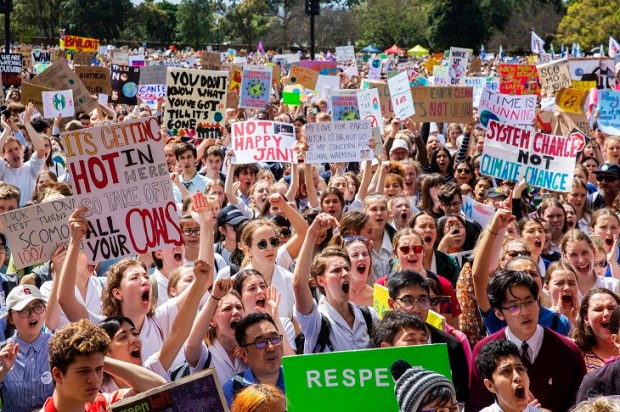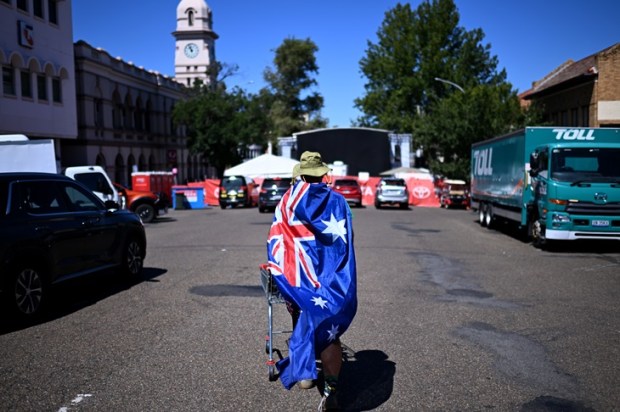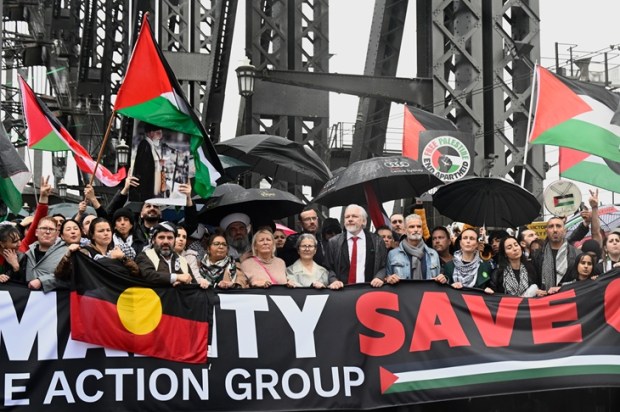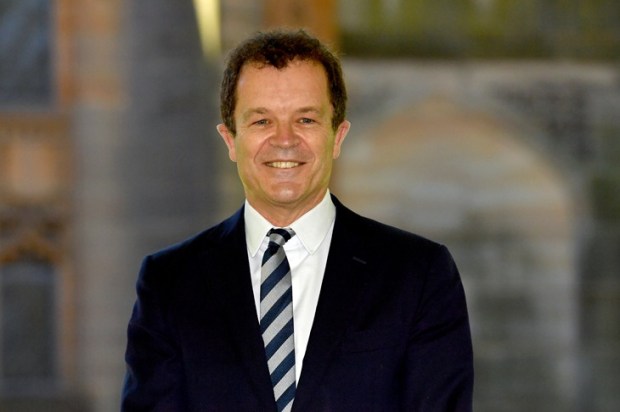Australia has a habit of being caught with its pants down when it comes to defence spending. In 1938, Australia’s defence spend was a miserable 1.6 per cent of GDP. In the last ten years, it has wavered around 1.9 to 2 per cent. While the measure of defence spending as a percentage of GDP does not necessarily reflect the capability of one’s defence force, it does indicate that Australia has not been pulling its weight.
President Trump wants Nato allies to lift their spending to 5 per cent of GDP. There are some reports that this is an ‘ambit’ claim, and he would settle for 3.5 per cent. It’s about what the US spends, and it is not an unrealistic figure.
On the eve of Anzac Day, the Sydney Opera House, the scene of disgraceful antisemitism following the terrorist attacks on Israel on October 7, hosted the Anzac Sunset Tribute. At the event, Australia’s most successful businessperson, Gina Rinehart, stated:
‘It is my belief that we urgently need to do more to defend Australians, starting with protecting our ports, airports, sea lanes, and other vital infrastructure, and significantly boosting our smart sea mines, small drones, and Israeli-style drones accordingly, and boosting our defence manufacturing here at Australia, as well as our budget to 5 per cent of GDP.’
Some are already questioning Mr Dutton’s pledge to lift the defence spend to 3 per cent of GDP by 2035. But during the Cold War, Australia managed to sustain an average of 2.9 per cent of GDP from 1950 to 1991. Indeed, in the early 1950s, in response to the Korean War, Australia’s defence spending peaked at over 5 per cent.
Mrs Rinehart’s 5 per cent figure ought to be taken seriously. We’ve been so lackadaisical about defence for so long it is crazy, and we need to catch up. Mind you, recruiting is a major issue, and it is hard to imagine having a national service system like we did from 1911–29, 1939–45, 1951–59, and 1964–72. There was also a period from 1905-09 where Australia had a cadet scheme.
However, there is plenty of scope to legislate for a university regiment at every Australian university. This would go a long way to bringing a sense of national pride back to our higher education institutions.
The bottom line is that citizens have been called upon to defend their countries since time immemorial. We love to think we are so sophisticated these days that it can’t happen again, but the human progress thesis remains a fairy tale.
Mr Dutton will lift defence spending in the near term (not by enough, but it’s a start) but Mr Albanese won’t.
As we honour our fallen and the fearless sons and daughters of Anzacs this Anzac Day, spare a thought for the very people who protect our way of life. They are currently doing so on the smell of an oily rag. They deserve more.
Ubique.
Lest we forget.


























